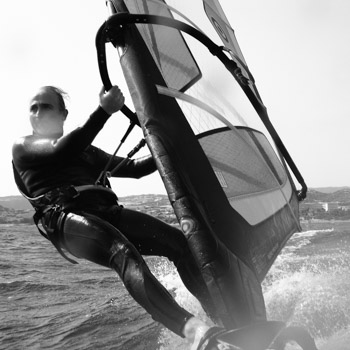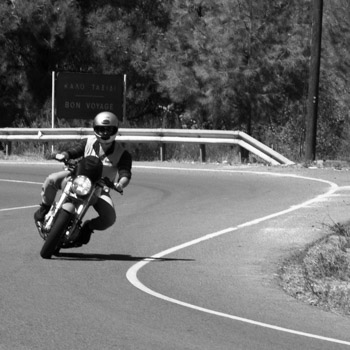Born in 1961 to a photographic family dating back to late 19th century, I started shooting with my fathers Leica III at the age of 7. Being the youngest of four brothers and belonging to one of the busiest studios in town, it was not long before I was fully involved in the business and started shooting weddings professionally from the age of 16.
But it was not long before a natural affinity for science and technology took over the frustrations of film and chemical processing, that I soon found myself immersed in the upcoming world of personal computing and spent the next 30 odd years developing software applications for the business world.
But in 1997, a 1.3mp Olympus digital camera lured me back into photography. Despite the lack of resolution, but thanks to a brilliant lens, this camera produced excellent images without scratch marks, dust spots, water marks, colour shifts and it did so consistently and predictably. It soon became apparent that the greatest attraction of digital cameras was not the immediacy of results, or lack of film costs, but control. All I needed was a personal computer and inkjet printer to be in full control of the results from start to finish. Two decades later the camera and personal computer are sitting in our pockets waiting for something interesting to photograph, or a phone call !
Today, technology is challenging our abilities as photographers to create, as it is rare to be limited by what our tools are capable of. This creates both a challenge and an opportunity. Often in the past we found comfort by the limitations of whatever equipment was available to us, but today we have the choice to push our own boundaries, limited only by imagination and dedication. It has also blurred the line between still and moving images since almost all cameras are capable of both, to some degree or other, opening even more creative opportunities.
But it has also created some confusion as to when a professional photographer is needed. With a modest sum of money anyone can buy a very capable digital camera these days, which left on AUTO, will produce good results some of the time, great results a few times and dreadful results the rest of the time. In many situations this simply dose not matter, but there are situations where it does matter, a lot. The success of an advertising campaign, a wedding, an opening ceremony, etc., etc.
What defines a professional more than anything else, is the ability to deliver as promised, not as hoped for.
But it was not long before a natural affinity for science and technology took over the frustrations of film and chemical processing, that I soon found myself immersed in the upcoming world of personal computing and spent the next 30 odd years developing software applications for the business world.
But in 1997, a 1.3mp Olympus digital camera lured me back into photography. Despite the lack of resolution, but thanks to a brilliant lens, this camera produced excellent images without scratch marks, dust spots, water marks, colour shifts and it did so consistently and predictably. It soon became apparent that the greatest attraction of digital cameras was not the immediacy of results, or lack of film costs, but control. All I needed was a personal computer and inkjet printer to be in full control of the results from start to finish. Two decades later the camera and personal computer are sitting in our pockets waiting for something interesting to photograph, or a phone call !
Today, technology is challenging our abilities as photographers to create, as it is rare to be limited by what our tools are capable of. This creates both a challenge and an opportunity. Often in the past we found comfort by the limitations of whatever equipment was available to us, but today we have the choice to push our own boundaries, limited only by imagination and dedication. It has also blurred the line between still and moving images since almost all cameras are capable of both, to some degree or other, opening even more creative opportunities.
But it has also created some confusion as to when a professional photographer is needed. With a modest sum of money anyone can buy a very capable digital camera these days, which left on AUTO, will produce good results some of the time, great results a few times and dreadful results the rest of the time. In many situations this simply dose not matter, but there are situations where it does matter, a lot. The success of an advertising campaign, a wedding, an opening ceremony, etc., etc.
What defines a professional more than anything else, is the ability to deliver as promised, not as hoped for.
personal preferences
There is little doubt I have a lot of DNA from my father, who liked to travel three months a year with a camera on the back of a donkey creating post cards of Cyprus. Having already fallen off one, thankfully a donkey is not essential for carrying cameras any more, but the passion to wonder off and discover new places, by design or accident, is most definitely there.
If there is one thing I get more satisfaction than taking photos, is teaching and not just photography. I have no formal education or training as a teacher, just a natural ability to transfer know how. From windsurfing to computer skills, I have been training people in one thing or another since the age of 18 and as of now, dedicating a significant portion of my time to re-training people in photography. Here is why.
January 2007, a fruit company introduced a communications device which made photography the single most popular activity today. Kodak, the inventors of digital cameras, failed to understand the single most important aspect of photography, that it is a means of (visual) communication. Apple, by giving a camera the ability to share an image instantly with a click, transformed the way the world uses images.
Smartphone cameras have come a long way in these 10 years, producing results which are often difficult to differentiate from professional cameras and are constantly becoming smarter as processors as getting faster. Unfortunately the same cannot be said for the brains holding the smartphones. The simple truth is that we are all getting lazier as certain things in our lives are becoming easier, very often sacrificing quality for convenience. As most digital cameras can now produce acceptable images with no effort at all, some will even 'click' automatically as you smile to them, most people cannot be bothered to learn even the basics of photography, even though it has never been easier to learn. All you need is a screen connected to the internet. What is lacking is incentive. Here are two.
A great moment captured is like a good red wine. The older it gets, the more valuable it becomes, a value which cannot be reproduced with money. It takes such little effort to go from a mediocre image to a great one, that is makes no sense to remain ignorant. The second and perhaps more compelling reason is the simple fact that no matter how smart cameras become they will never know what is in your mind. Will you allow a computer chip to do the talking for you ?
Its not about perfecting the art of photography to start creating masterpieces, its a simple matter of learning how to use a new and extremely powerful means of communication, one which knows no boundaries and is truly universal.
There is little doubt I have a lot of DNA from my father, who liked to travel three months a year with a camera on the back of a donkey creating post cards of Cyprus. Having already fallen off one, thankfully a donkey is not essential for carrying cameras any more, but the passion to wonder off and discover new places, by design or accident, is most definitely there.
If there is one thing I get more satisfaction than taking photos, is teaching and not just photography. I have no formal education or training as a teacher, just a natural ability to transfer know how. From windsurfing to computer skills, I have been training people in one thing or another since the age of 18 and as of now, dedicating a significant portion of my time to re-training people in photography. Here is why.
January 2007, a fruit company introduced a communications device which made photography the single most popular activity today. Kodak, the inventors of digital cameras, failed to understand the single most important aspect of photography, that it is a means of (visual) communication. Apple, by giving a camera the ability to share an image instantly with a click, transformed the way the world uses images.
Smartphone cameras have come a long way in these 10 years, producing results which are often difficult to differentiate from professional cameras and are constantly becoming smarter as processors as getting faster. Unfortunately the same cannot be said for the brains holding the smartphones. The simple truth is that we are all getting lazier as certain things in our lives are becoming easier, very often sacrificing quality for convenience. As most digital cameras can now produce acceptable images with no effort at all, some will even 'click' automatically as you smile to them, most people cannot be bothered to learn even the basics of photography, even though it has never been easier to learn. All you need is a screen connected to the internet. What is lacking is incentive. Here are two.
A great moment captured is like a good red wine. The older it gets, the more valuable it becomes, a value which cannot be reproduced with money. It takes such little effort to go from a mediocre image to a great one, that is makes no sense to remain ignorant. The second and perhaps more compelling reason is the simple fact that no matter how smart cameras become they will never know what is in your mind. Will you allow a computer chip to do the talking for you ?
Its not about perfecting the art of photography to start creating masterpieces, its a simple matter of learning how to use a new and extremely powerful means of communication, one which knows no boundaries and is truly universal.

























